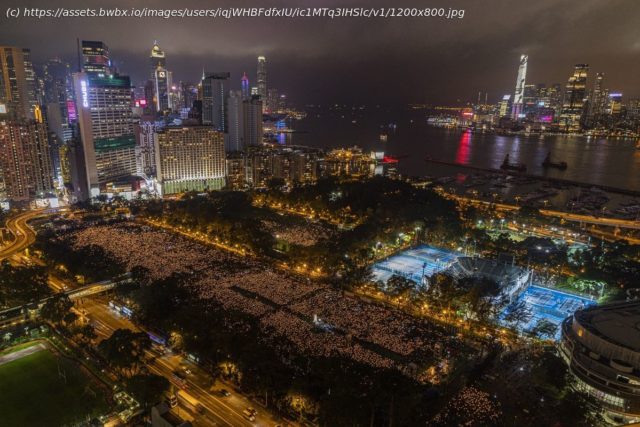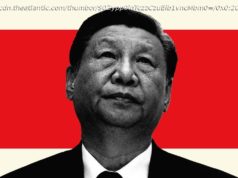Hong Kong has banned the annual vigil commemorating the crackdown in an attempt the emulate the way China has erased its memory. Good luck with that.
For the first time in 32 years, Victoria Park in Hong Kong is likely to be largely empty on the night of June 4. Silent open spaces across the grass and soccer pitches where tens of thousands have gathered every year to commemorate the military crackdown on the Tiananmen student protests will be, for the city’s Beijing-backed authorities, the sign of a job well done. Appearances may be deceptive. It’s the second year in a row that Hong Kong has banned the annual Tiananmen vigil, ostensibly for Covid-19 and public order reasons. Last year, thousands turned up anyway. Any large-scale repeat is unlikely. Authorities have made clear that the cost of participation will be prohibitive: Prominent activists such as Joshua Wong have been handed months-long jail terms for their part in last year’s peaceful and socially distanced event. A year ago, China had yet to enact its national security law for Hong Kong. That judicial sword of Damocles now hangs over all who would dare to defy official warnings. That doesn’t mean that Beijing has succeeded, or will succeed, in its objective of consigning Tiananmen to a largely forgotten footnote of history. The police and government can prevent overt displays of commemoration (a June 4 museum closed Wednesday, three days after opening), but they cannot erase the knowledge of 1989 from the minds of a people who have been accustomed to living in relative freedom. Hong Kong is still largely unencumbered by the media controls that have enabled the ruling Communist Party to manage public opinion in the mainland so effectively; that legacy is not easily overcome, especially for a financial center that still depends on the free flow of information in order to function. For Hong Kong, the lessons of Tiananmen have never been more relevant. The banning of the event forms part of a wider assault on truth and memory, one that seeks to characterize Hong Kong’s own pro-democracy protests as part of a conspiracy planned and funded by foreign anti-China forces intent on chaos and destruction. It is a narrative that precisely echoes the post-Tiananmen program, when the students who sought a less corrupt and more democratic China — and who drew sympathy widely within the party, up to and including the general secretary himself — were branded counter-revolutionary rioters.






